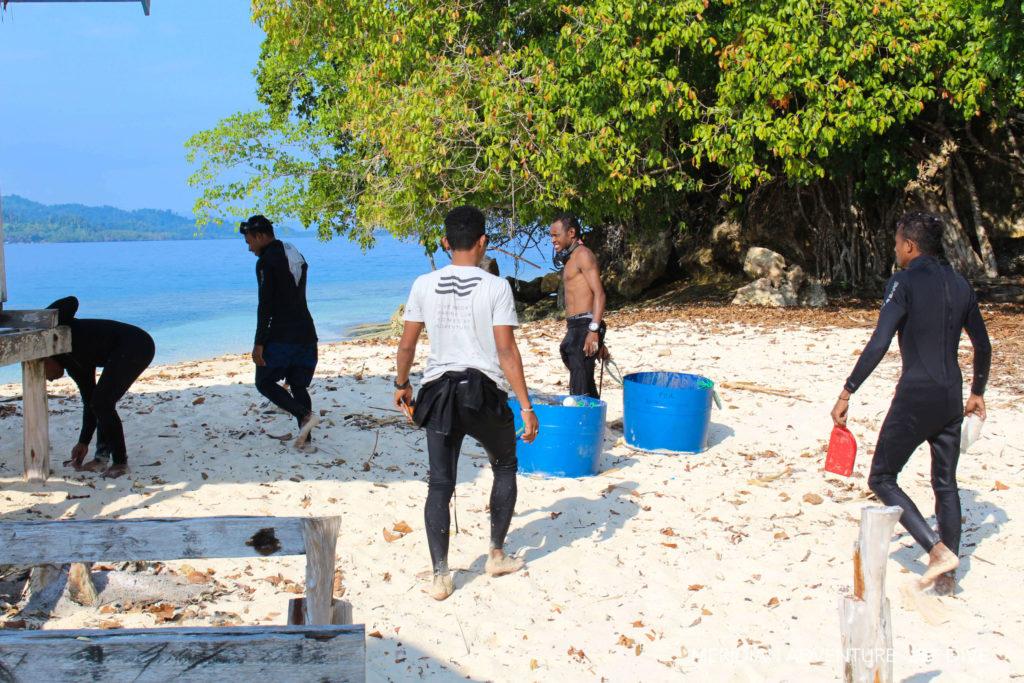A Clean Ocean Requires Clean Rivers and the importance of changing behaviour towards ocean health.
It's 2022 – and if you do not know the importance of changing behaviour towards ocean health and why it's necessary yet, you may have been in hiding for the last few decades. The oceans are in dire distress: overfishing, climate change, pollution, and the lack of education have all pushed our oceans to the brink of collapse.
But few people realise the importance rivers play in ocean health. A 2017 study found that around 90% of all the plastic in the world's oceans flows there through just ten rivers. Eight of those rivers were in Asia, and two in Africa. They all run through highly populated areas, lacking effective waste collection, meaning trash often ends up in the river.
Raja Ampat is one of two locations in Indonesia that plan to create an effective waste management system. The lack of adequate waste management facilities is a consequence of Indonesia's rapid modernisation and adoption of the consumer lifestyle: Barely two generations ago, all waste generated in Indonesian society was biodegradable.
According to a recent clean-up effort from Thames21 – a group that organises clean-ups along the foreshore of the River Thames – wet wipes have become a current problem since it is often flushed down toilets. They are discharged into the river from the sewers after heavy rainfall. These wipes break down into smaller pieces of microplastics, which ultimately end up in our oceans.

Plastic takes centuries to break down, and instead of simply disappearing – it finds its way into the stomachs of marine life and seabirds. It is even finding its way into humans – a recent study found that globally, we are swallowing an average of 5 grams of plastic every week (although it cannot be proven that it all comes from the oceans).
Stay away from cosmetic products such as face wash that contains microbeads.
Do not flush the following down the toilet: Wet wipes, Cigarette butts, Gum, and Dental Floss.
Dispose of your cigarette butts appropriately, and do not throw them on the streets where they can wash down the drains and end up in our rivers.
Ensure your car does not leak oil, which can eventually wash down storm drains and end up in the watershed.
Don’t flush any unused medicine down the toilet or wash medicinal liquids down the drain of your basin.
Do you have any other simple tips for ensuring we take care of our rivers and, ultimately, our oceans? Let us know on social media!
FACEBOOK: meridianadventuresdive
INSTAGRAM: @meridian_adventure_dive









